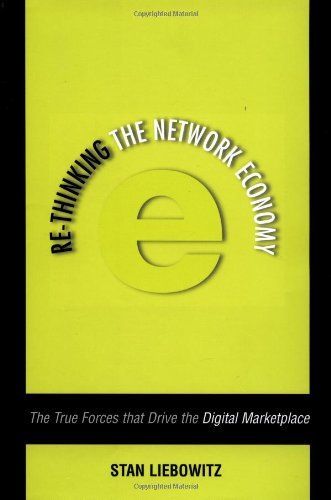“Re-thinking the Network Economy” examines the economic and business principles that underlie the so-called “network economy,” in which technology enables people and businesses to connect and interact with each other in new ways.
The network economy is not a new phenomenon
Contrary to popular belief, the concept of the network economy is not a new one. Liebowitz argues that networks have been a part of economic life since ancient times, and that the Internet has simply made them more visible and efficient.
Security is also a major challenge for the network economy
Along with privacy concerns, security is a major challenge for the network economy. As more and more critical infrastructure is connected to the Internet, the potential for cyberattacks and other security breaches increases.
The network economy raises important questions about intellectual property
As more and more content is distributed online, the issue of intellectual property becomes increasingly important. The network economy raises questions about how content creators can be compensated for their work, and how intellectual property can be protected in an online environment.
The network economy presents both opportunities and challenges
Ultimately, Liebowitz argues that the network economy presents both opportunities and challenges for businesses and individuals. While it has the potential to transform the way we live and work, it also raises important questions and challenges that must be addressed.
The network economy does not necessarily lead to more efficient markets
Another assumption of the network economy is that it leads to more efficient markets, but Liebowitz challenges this view. He argues that the network economy can create information asymmetries that actually make markets less efficient.
The network economy is not as transformative as some claim
Many proponents of the network economy argue that it represents a fundamental shift in the way we do business, but Liebowitz challenges this view. He argues that the basic economic principles that underlie the network economy are not fundamentally different from those of traditional business models.
Privacy concerns are a major challenge for the network economy
One of the key challenges facing the network economy is privacy. As more and more personal data is shared online, individuals are increasingly vulnerable to identity theft, surveillance, and other forms of privacy invasion.
The network economy can exacerbate economic inequality
One potential downside of the network economy is that it can exacerbate economic inequality. Those with the skills and resources to take advantage of networked technologies may benefit greatly, while others may be left behind.
The network economy does not eliminate the need for trust
One of the key benefits of the network economy is said to be its ability to facilitate transactions between strangers without the need for trust. Liebowitz argues that trust is still an essential element of economic activity, and that the network economy cannot eliminate this need.
The network economy does not necessarily lead to increased competition
Another commonly cited benefit of the network economy is that it increases competition, but Liebowitz argues that this is not always the case. In fact, the network economy can actually lead to increased concentration and decreased competition in some markets.


Member discussion: